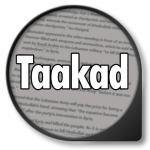Social media usage has increased tremendously. In Lebanon 70 percent of netizens are now online, creating content with every comment, post, and upload. With this increase has come a new kind of economy for media and journalism in which any person has the ability to access the Internet, produce and share stories, impact and change ideas.
These acts of media production—from nonprofessionals in many cases—have shaken the monopoly of mainstream outlets and made the media more populist. As Clay Shirky wrote in Here Comes Everybody, “The future presented by the internet is the mass amateurization of publishing and a switch from ‘Why publish this?’ to ‘Why not?” The result is that along with the many positive impacts that came with this change, new problems have also occurred.
One of the main issues is the accuracy—or lack thereof—of shared information. The ease of producing content makes it open for error and abuse. Content creators not interested in accuracy can manipulate images and videos to make a point. Viewers of that content, including mainstream media outlets, often don’t have the skills or take the time to verify such posts and in the interest of speed to get a good “scoop”, simply pass them along, through reposts or retweets.
It’s not a problem without a solution, however. With some basic knowledge about factchecking and how to verify images and videos online, citizen and professional journalists alike can improve their social media–sourced reporting.

With this in mind, SMEX is launching a campaign for social media verification called Taakad, which means “to verify” in Arabic. Taakad aims to do more than raise awareness about the verification problem by engaging both practicing journalists and citizen reporters in the fact-checking of social media news reports via a web platform called CheckDesk. The collaborative campaign, which will run through the end of November, is being conducted in English with Beirut Report and in Arabic by three Lebanese bloggers and is being supported by Meedan, the organization that created the CheckDesk software.
By modeling social media verification best practices and encouraging others to do the same, Taakad aims to minimize errors and improve accuracy in the social media content shared on news and other platforms in Lebanon.
Anyone can participate in Taakad. Here are some examples of how:
- Investigate and create a story by adding various social media links, for example, see how journalist Habib Battah tries to check the ISIS and Nusra Front involvement in latest Tripoli incidents.
- Verify a specific piece of content, like this case that journalist Mahmoud Ghazayel did in the Arabic version, which confirms that the images of injured/killed kids are not coming from Tripoli Lebanon, but from Syria.
- Publish related manuals and guides on Tasharuk.net, such as the Social Media Verification Handbook, that can help journalists and bloggers improve their social media verification skills. Also, check the helpful tips below.
Anyone can register to get involved at smex.checkdesk.org. And you may want to get fact-checking as soon as you can. Three prizes will be given for the most active and accurate reporters at the end of November in Beirut.
Tips on Using Check Desk by Social Media Exchange Association


